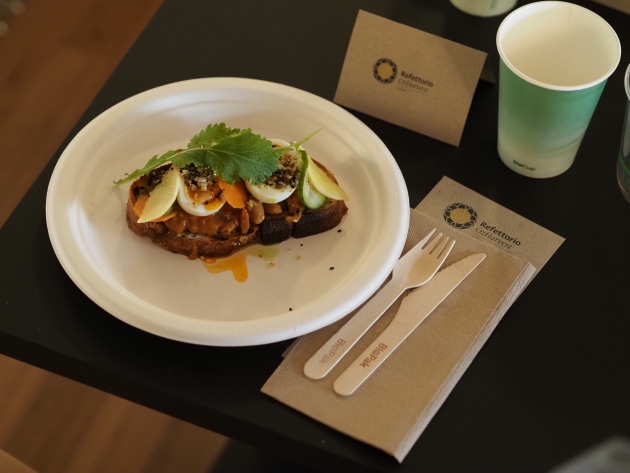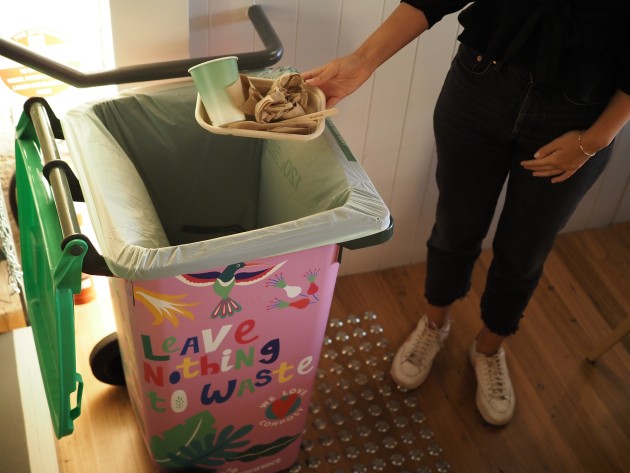Food waste solutions were on the menu at OzHarvest’s first zero-waste breakfast, with initiatives such as composting highlighted as a major opportunity for the foodservice sector in tackling the country’s national waste crisis.
OzHarvest founder Ronni Kahn, BioPak CEO Gary Smith, chef Neil Perry and fourth generation composter Lachlan Jeffries shared their current food waste initiatives, and their experiences tackling food waste.
Kahn said over 7.6 million tonnes of food was going to waste each year, and recommended food businesses stop using plastic entirely.
“OzHarvest is committed to halving food waste by 2030, but it’s a big job and needs change at levels of society, from government, industry and households.
“Food that ends up in landfill creates methane gas which is a huge contributor to climate change and preventing this from happening is key to protecting our planet. Composting and using sustainable packaging can play a huge role, especially for the hospitality industry. If you’re in the business of food, you should seriously look at adopting this model as plastic should not be part of our future,” said Kahn.
A product stewardship scheme, Compost Connect, was noted as being a viable solution in reducing the one million tonnes of organic waste created by Australia’s foodservice industry every year.
Backed and used by Neil Perry, the scheme connects businesses and individuals to places that can compost their food waste and packaging, and has released new data detailing which Australian councils offer residential composting and whether they accept food waste and certified compostable packaging in their bins.

“As a country, we need to re-think our processes and start thinking of the bigger picture. We need to work together to address the problem, reduce organic waste and contribute to achieving a better society for future generations,” said Perry.
BioPak CEO Gary Smith commented on the ongoing changes to plastic bans and the current state of single-use plastics, and said a circular economy was a viable solution to food-waste.
“With plastic bans taking place across the country, there are many questions around how the foodservice industry can adopt sustainable practices while managing food safety and hygiene standards where reusable options are simply not an option.
“A circular economy using natural or reclaimed materials has been noted time and time again as a scalable solution to our waste crisis. Schemes such as Compost Connect are helping businesses dispose of waste where their current rubbish collection is simply not appropriate.”
Fourth generation composter, Lachlan Jeffries discussed the benefits of compostable packaging as a conduit for diverting more food waste from landfill.

“We see food packaging made from plants as a vessel and tool to help us capture and compost food organics that would otherwise go to waste,” said Jeffries.
All food present at the breakfast was served using BioPak certified compostable plates, cutlery and drinkware, leaving no waste, as all materials were able to be placed into Compost Connect bins following the event.
Compost Connect currently has 373 businesses who progressively joined the initiative and have helped divert approximately 2090 tonnes of organic waste and compostable packaging from landfills, the equivalent to the weight of 800 elephants.
This contributed in creating 1460 Tonnes of compost, and avoided the emission of 1060 Tonnes of carbon into the atmosphere.







